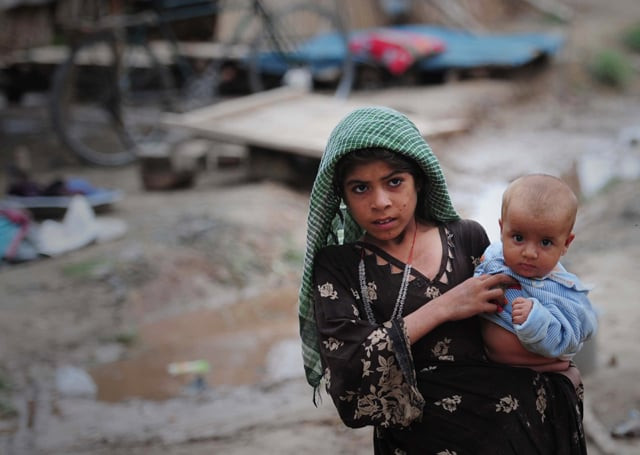Pakistan slips down development rankings: UN Report
Country clubbed together with 46 low human development countries.

Pakistan has slipped into the low human development group of countries as almost half of the country’s population is deprived of basic education and health facilities, according to a United Nations report released on Tuesday.
The United Nations Human Development Report 2011, titled “Sustainability and Equity: A Better Future For All”, ranks Pakistan at 145 among 187 nations as compared to 125 in 169 nations last year. In 2010, Pakistan was categorised as a medium human development country.
Although Pakistan’s ranking has lowered, there has been a marginal improvement compared to last year when 51.3% of the population was suffering from multidimensional poverty. This year, Pakistan is among 46 countries in the low human development category.
The report says that as many as 49.4% of the country’s population is living in multidimensional poverty, while 11% is at risk of being pushed into the category. It defines the phenomenon of multidimensional poverty using the Multidimensional Poverty Index (MPI) which assesses the nature and intensity of poverty at the individual level in education, health outcomes, and standard of living.
According to the report, 53.4% of the population is suffering from intense deprivation while 27.4% lives in “severe poverty”.
Life expectancy and gender equality
The report states that Pakistan’s life expectancy at birth has fallen to 65.4 years from 67.2 in 2010.
Norway, ranked at number one and said to have very high human development, is where life expectancy is 81.1 years, almost 16 years more than in Pakistan.
Alarmingly, Bangladesh, a younger nation than Pakistan, also fares better at 68.9 years.
In terms of gender inequality, Pakistan is ranked at 115 among 187 countries. The report says that the labour force participation rate for women is 21.7% while that for men is 84.9%.
Talking solutions
“Pakistan has come out very poorly on all global indicators and, in most cases, we are at the bottom of the barrel,” Dr Nadeemul Haque, deputy chairman of the Planning Commission, admitted at the launching ceremony.
Toshihiro Tanaka, the UNDP’s Country Director for Pakistan, said that the country needs to have better strategies to achieve the Millennium Development Goals and to finance its development.
To this, Haque admitted that Pakistan does not have a long-term overarching theme for growth and all the country’s policies are short-term. “For the past five years, per capita income has not increased due to low economic growth as well as high population growth,” he said.
As a solution to poverty, Haque suggested that people should be encouraged to migrate to cities. “In urban areas, women will also be included. But these cities must not be run as bureaucratic enclaves,” he said.
But ANP MNA Bushra Gohar criticised the report, which is considered the only comprehensive document to reflect Pakistan’s poverty situation, saying that it did not take into account the impact of floods, war against terrorism and internally displaced persons on development and environmental degradation.
Published in The Express Tribune, November 30th, 2011.



















COMMENTS
Comments are moderated and generally will be posted if they are on-topic and not abusive.
For more information, please see our Comments FAQ